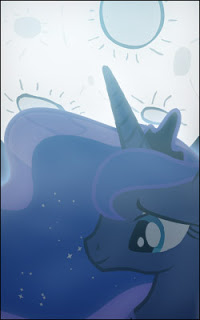
Truth of the Changeling
Weeks before, eyes moved in flame—burning.
“Shhh… no, no. Don’t—!”
A stallion pulled the child’s face into his skin to keep her warm. Behind them crept darkness—a veil of smoke to cloud them from the ruins. Even so, the heat tingled at the corners of his eyes. He shut them for a moment, pulling the girl closer while trying to drag her back from the flame. She cried. She screamed and gasped for air. There was none.
Again, the bystander tried reaching her: “You can’t… Let me—!” He stopped—cinder burned a hole in the back of his throat, bringing the air to warm iron—bringing the air to blood. A tingling grew within his lung. “Please… Please….”
The filly pushed against him. Her knees were locked against the dirt.
“I can… I’ll go.”
Her ear twitched: she heard him.
“Just stop….”
The girl looked up, tears rolling from her cheeks. He could hardly see her face through the burns—somehow she could still cry. Her flesh was pink with fear—or maybe it was just the burns. He couldn’t tell.
The stallion pushed her into the dirt before pressing his hoof into her side. She squealed.
“I’m going back, alright? Stay—.”
“No, wait!”
He didn’t think she could speak. The bystander cocked his head. “Hm?”
“Don’t… go.” The filly’s eyes tracked something behind him. He turned; his friends ran into the smoke. They would find whatever was left in there no doubt—he would only be stealing their air. The stallion stopped.
He dropped down beside the girl. Her eyes were still all puffy.
“Are you OK?” he asked.
The girl nodded.
“Did you live here?” The stallion looked up into the smoke. He could barely make out the traces of the barn’s frame, and the silo had all but caved in. Had he come sooner, it might not have been so desperate.
The girl shook her head, frowning.
He furrowed his brow. “No? So where are you from then?”
“Canterlot,” she replied shamelessly. It was clear that she hadn’t had the faintest idea of what had happened to the city—or for Equestria as a whole, for that matter. The stallion could only turn back to the fire and sigh.
He could hear voices in the flame—quiet ones. They whispered to him. They told him about the history. They told him about the ponies that had lived here: where they had gone. He could see smoke like shrouds upon their backs, flipping and twisting and dancing before sinking back into nothingness.
He saw a family too—and other children.
“Why did you come here? We’re pretty far from Canterlot, you know.” The stallion looked back to the filly. She was still staring at him.
“I ‘unno.” She shrugged.
“Well, can you tell me where your parents are?”
The girl squirmed slightly then looked back into the fire—not in fear, but of wanting. There was no answer. She must have lost track of them. Silent, the bystander pulled the girl closer into him. He could feel her breathe—slowly, slowly. A heartbeat echoed against heartbeat. Warmth.
Her voice trembled. “They’re going to be OK, right? I mean, no one is going to….” She bit her lip.
“I don’t think those things want us dead. As for your parents, they are probably out looking for you too.”
“What are the things?”
The bystander’s eyes caught hers. “The Changelings?”
She nodded.
“They’re creatures, as any others. They are born and then they die. What happens in the middle is up to them.” The stallion pushed himself forward to sit in front of the girl, then put his hooves over hers. “What more do you need to know about them?”
“Everything,” she replied, innocent.
Something about it made the stallion smile—a chance to tell his story. “Well, they are like us, sort of. They all have a leader, and they all want to do their best to make her proud. There’s not much else to it other than survival, of course.”
The girl was quiet again—too afraid to ask.
“But you want to know why they’re here, right?”
A nod.
“Well, that’s a bit more complicated. You see, Changelings can’t live like we do. They can’t just eat apples. They need a special sort of food—one they can only get from us.”
“They eat ponies?” The girl’s pulse jumped.
He paused for her then returned. “No—love. They need love. It’s something they can’t make themselves and need to take from us. That’s just how they live.”
“They can’t love?”
“No. They’re animals to us—they do not have the sort of thought capable of love, or at least not the drones. Decisions in the hive are made by the leader and the leader alone, for she is the only one to carry our free will.” The bystander tapped his hoof against his temple. “But that doesn’t mean she can love. Parts of her head—they’re missing. She can’t love. She can’t feel pity. She can’t even feel what it is to have a friend. She can only pretend, and in that regard, there is no one better.”
The filly looked up, expecting more. He took a breath, then thought of where next to begin.
“Chrysalis—that’s her name. Or at least that’s what we call her, since she has no need for names in her world. In her world, she is just everything. There are hundreds upon thousands of changelings, but they are all her. There are just as many ponies, too, but they are nothing.” He wet his burns above his lip. “I once used to follow her, you know. It wasn’t by choice, of course, but that doesn’t really matter now, hm?”
Now the girl was in awe. Questions boiled underneath her skin—he could sense it. Her first came quickly: “What was she like?”
“She was what we ponies might refer to a sociopath. She didn’t do things for good or bad—she didn’t think about how her choices might hurt those around her, but that was simply because she didn’t care about those around her. Everything was a calculation, too. She had a sort of sense for what others would do long before they could even imagine it.” He stopped again, thinking of whether or not he’d actually answered the question, then continued. “I suppose, on a personal level, she was OK. She was the sort that was living in her own little world, if you know what I mean. I guess she smiled a lot too.”
“Do you know where she is—like right now? Is she here?” Her eyes locked upon his, as if demanding his mercy. Still, her face was blank with naivety.
He struggled not to laugh. “No, she’s gone. Princess Luna killed her—violently, too. Something she’d said left the parasite to hang herself on a rope of thorns. A few days later, they cut her down and threw her on a fire. Whatever’s left of her is going with the winds.”
“Oh?” The girl sighed. Thus popped the bubble of interest.
“But…,” he toyed.
She perked up.
“But if you ask me, it’s suspicious at best. I was there when the Princess did it, or at least I was there just after. Something had happened up there—something I don’t know we’ll ever understand—but whatever it was, it’s gotten to Luna. Her sister isn’t in too good a shape either.” The bystander almost laughed.
“Celestia is hurt?”
The bystander nodded. “Celestia is nearly bedridden, and her sister is in an existential depression. Equestria is practically in a free for all right now, and they’re too distracted by their love to even think about rebuilding. Why do you think I’m here? It doesn’t take a tiara to do good, you know.”
The filly edged closer to him, pushing her head back into his chest. “How many of you are there?”
“Plenty.” He looked into the fire, expecting to see the outline of the two ponies that had run in earlier. Shadows still shifted amongst the blaze. “There are plenty of missing people too, but we’re doing our best to fill out all the gaps.”
He smiled, and so did she.
“This is something you’ll learn later in life: there is nothing more polarizing than a disaster. If you survive, you will never be closer to those around you. But if you don’t, well… I suppose that one explains itself. Just remember that when we find your parents, alright?”
“Mhm,” she nodded, now satisfied. “But can I ask one more thing?”
“Yes?”
“When will it end?”
He looked carefully at the rims of her eyes—he could only barely make out the glint of tears in the light of the fire. “It ends when you say it does.”
“Huh?”
The bystander shook his head. “For every story, there is more. Nothing ever really ends, you see? And for good reason—we never want endings anyway. We can be so sure of what happened—we can even pick a specific spot and say ‘this is where it ended’, but that’s not true because you’ll always wonder about what happened afterwards. And there always is something that happens afterwards, or at least we’d like to imagine that there is. Even Chrysalis knows that.”
“But will the Changelings stop killing us?” The girl was nearly sobbing.
He’d hardly noticed.
“Sure. They’ll leave us alone in a few weeks, and we’ll never have to worry about them again. They can only go so far without a leader, I think.”
That was when she realized.
“But you said she controlled them—and she’s dead! How can they do anything? How are you so sure?”
A frost rolled up the stallion’s spine. He became rigid—cold. The smile faded, and he edged away. It took a moment for him to think a response, but even when he’d come up with one, he could not speak over the girl’s screams.
“It’s her! It’s her!” She screamed into the fire. No one came for her.
“Shhh… I’m not—!” His voice was overwhelmed. She had volume over him—and fear too.
Barlowe backed away from the girl, stepping back towards the fire.
She followed him, crying madly. Someone would hear her—someone would come, no doubt. He had to leave. He had to leave her behind.
No time.
Two ponies came sprinting out of the blaze. Barlowe had only a moment to twist his head before they came slamming into his side. From the weight, it must have been the father to land the first blow—right on the side of his skull. Barlowe dropped like a sandbag.
Then came noise: some worry about the girl, and she kept screaming about some parasite. The parents said, “Of course, dear,” and went running off into the woods with her between their jaws.
Barlowe sat up. There was a tingling in his side. He tried yanking on his saddlebag, but it was stuck into his skin.
The briars stuck awkwardly along the flesh. His eyes flickered green. Focus failed him. He looked out into the woods—the family had run out of sight.
So be it.
Chrysalis picked herself up before biting at the cord. A bit of blood leaked from the wound before the thorns gave way. There was hardly anything after that.
Such is the nature of stories—there are any number of ends to pick from, but one must always ask, “What next?”
For the girl inside the fire, there is nothing else. She was just another casualty in the game of life and death. The parents found their girl, and the girl found her parents. The two families never met again. She placed her hopes in family, but what had it done for her? The end is always the same.
For Celestia, there is nothing else. She was wounded, and soon she’ll get better. All will return to normal for her, and it will be as though nothing ever happened. She placed her hopes in honor and courage, but what had it done for her? The end is always the same.
For Luna, there is nothing else. Her sentiments of death infested until at last she expected it to be the end of her suffering—the end of the parasite and all the badness she saw in herself—but death did not redeem her. Death was just another lie fed to her by the parasite—just another way to make her feel as though she had no control between them—and it brought her to the ground. She placed her hopes in redemption and hope itself, but what had it done for her? The end is always the same.
And for Chrysalis, there is nothing else. Her plan succeeded: the attack created sufficient chaos for her Changelings to merge with the disconnected population. Luna’s assumptions about death allowed the Queen to effectively wipe Equestrian worry from existence and secured her place in their society without question. The court, too weak to maintain order, was unable to save their population from the parasite. Her population and theirs both flourished with the regrowth, and those left living were happy—and that’s all that really matters, in the end. She placed her hopes in the strength of her own mind and the value of survival, but what had it done for her? The end is always the same.
But what wasn’t obvious was that the whole story was told before Luna had even met Chrysalis. In fact, I might say that the story was never about Luna—it was never about Barlowe or the poetry or the invasion. The story was told when the Changeling, taken by death, rose again for one purpose, but died upon the thorn. The end was always the same.
Now what are they? They are memories—just inexistent memories—floating aimlessly in the grey of a fading consciousness.
Pick an ending point. You can pick the epilogue, because that’s where it might be most comfortable to end it, but it won’t really matter. You will always ask what comes next.
And you know it’s always the same.
Ask the girl in the fire. Ask Celestia. Ask Luna. Ask Chrysalis.
But first, ask the Changeling.
It told the story.

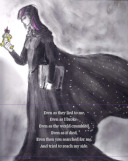
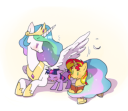
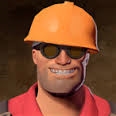

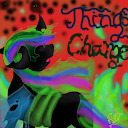

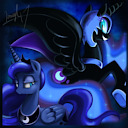

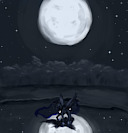
Chapters 4 and 5 are the same chapter. Also lay off the purple prose, mate. It's clogging the reading flow.
Also Chrysalis is the evil one? Really? Luna is a fucking necromancer.
Wow i loved that ending.
I like this...
I like this a lot.
It is one of those complicated stories that makes you think about things. (to put it into blunt terms)